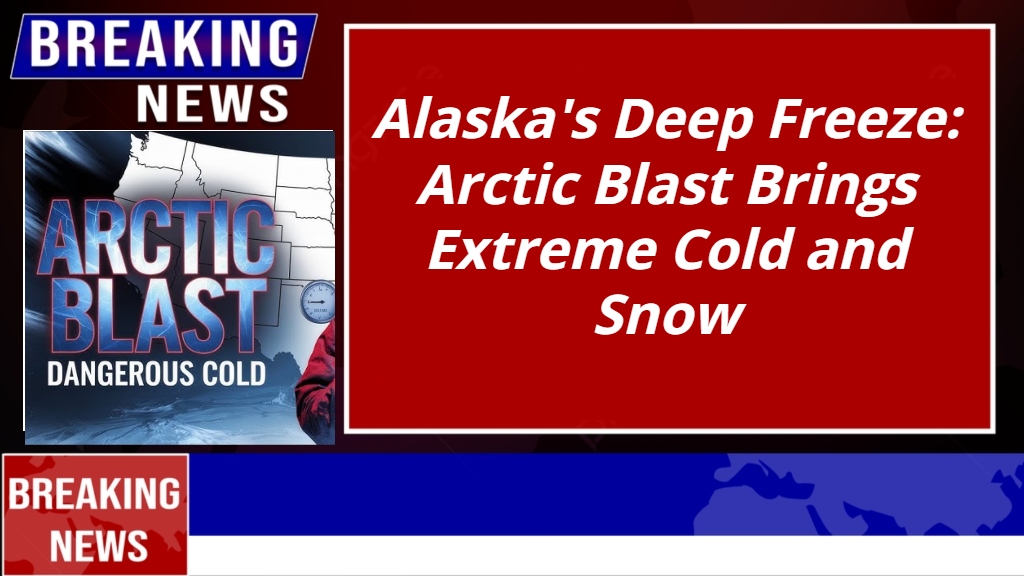Alaska’s Deep Freeze: Arctic Blast Brings Extreme Cold and Snow
Alaska is in the grip of an Arctic blast, and it’s not messing around. Temperatures have plunged well below freezing, and snow is piling up across the state. Whether you’re in Anchorage, Fairbanks, or Juneau, this cold snap is affecting everyone. Here’s what you need to know.
Anchorage: Freezing Days, Snowy Weekend
In Anchorage, today’s temperatures are hovering around 0°F (-18°C) and won’t get much higher than 9°F (-13°C). Nights are dipping even lower, so bundle up if you have to head out.
This weekend, the weather takes a turn. A little snow on Saturday will lead to heavier snow and sleet on Sunday, making roads slippery and travel tricky. If you can stay indoors, it’s probably your safest bet.

Fairbanks: Bitter Cold Like No Other
Fairbanks is used to cold, but this is next level. Daytime temperatures are around -33°F (-36°C), and by night, they’re dropping to a bone-chilling -35°F (-37°C). That’s the kind of cold where you feel it in your bones the second you step outside.
The good news? It’ll warm up slightly over the weekend. The bad news? “Warm” still means below zero, with Sunday reaching about 0°F (-18°C). Keep the layers on and limit your time outdoors.
Juneau: Snow and Sleet Incoming
Juneau isn’t as cold as Anchorage or Fairbanks, but it’s still freezing. Right now, it’s about 17°F (-8°C), and there’s snow in the forecast. Expect 3-6 cm of snow today, with more on the way over the weekend.
By Sunday, the snow will mix with sleet and freezing rain, which could make roads dangerous. If you’re traveling, check conditions and plan ahead—it might be safer to stay put.
Why Is It So Cold?
Blame the polar vortex. It’s a big system of cold air that usually stays near the North Pole. But sometimes, it wanders south, and that’s when places like Alaska get hit with extreme cold. Right now, we’re at the center of it.
How to Stay Safe
Alaskans know how to handle winter, but this cold snap requires extra care. Here are some tips to stay safe:
- Dress in Layers: Cover every part of your body, especially your face and hands. Frostbite can happen quickly in these temperatures.
- Stay Inside: If you don’t need to go out, don’t. This is especially important for kids, pets, and older adults.
- Prepare Your Car: Keep an emergency kit in your vehicle with blankets, water, and snacks. Make sure your tank is at least half full to prevent fuel lines from freezing.
- Help Others: Check in on neighbors who might need extra help, especially elderly or vulnerable people.
What’s Next?
The Arctic blast will stick around for a few more days. Early next week, temperatures might rise a bit, but that’ll bring snow, sleet, and freezing rain, creating new challenges. For now, stay warm and be prepared.


Comments are closed, but trackbacks and pingbacks are open.